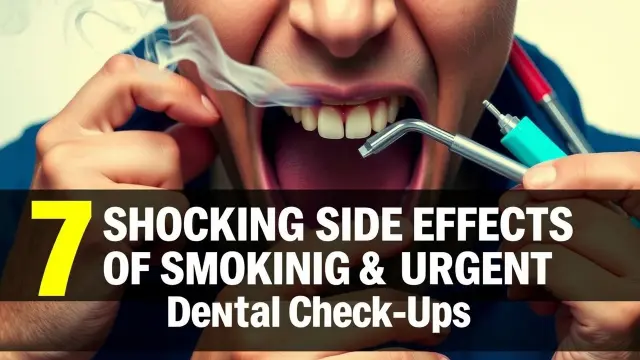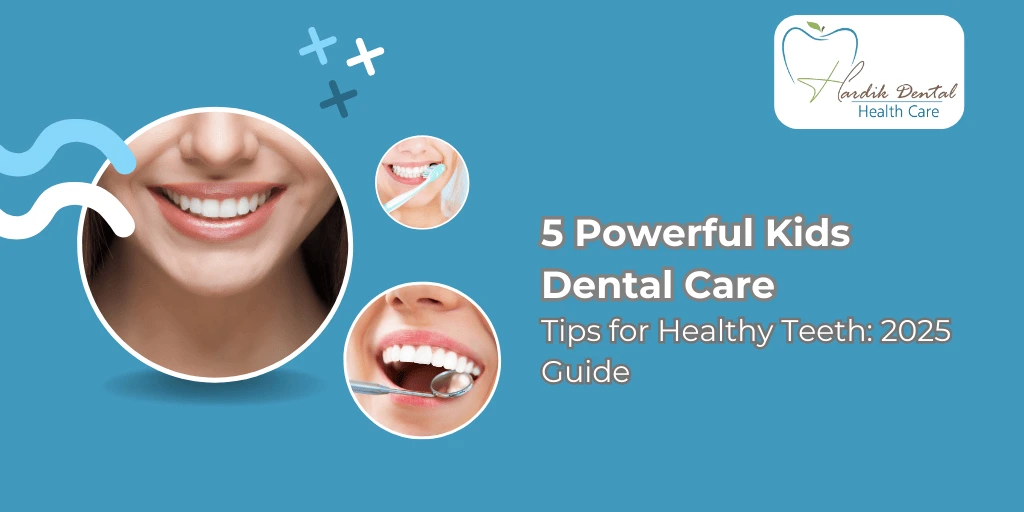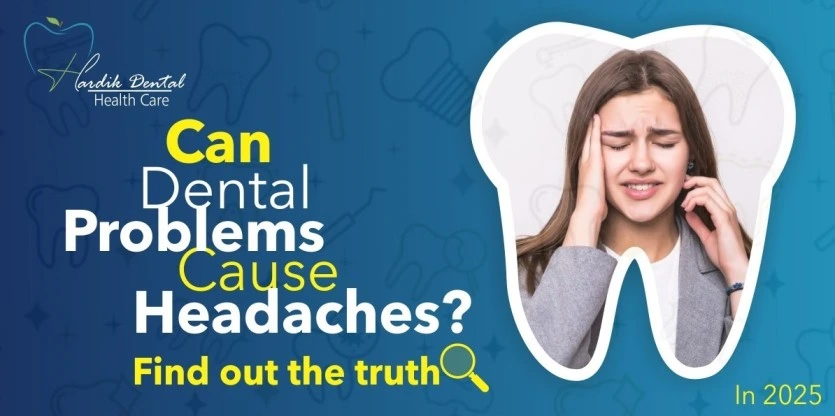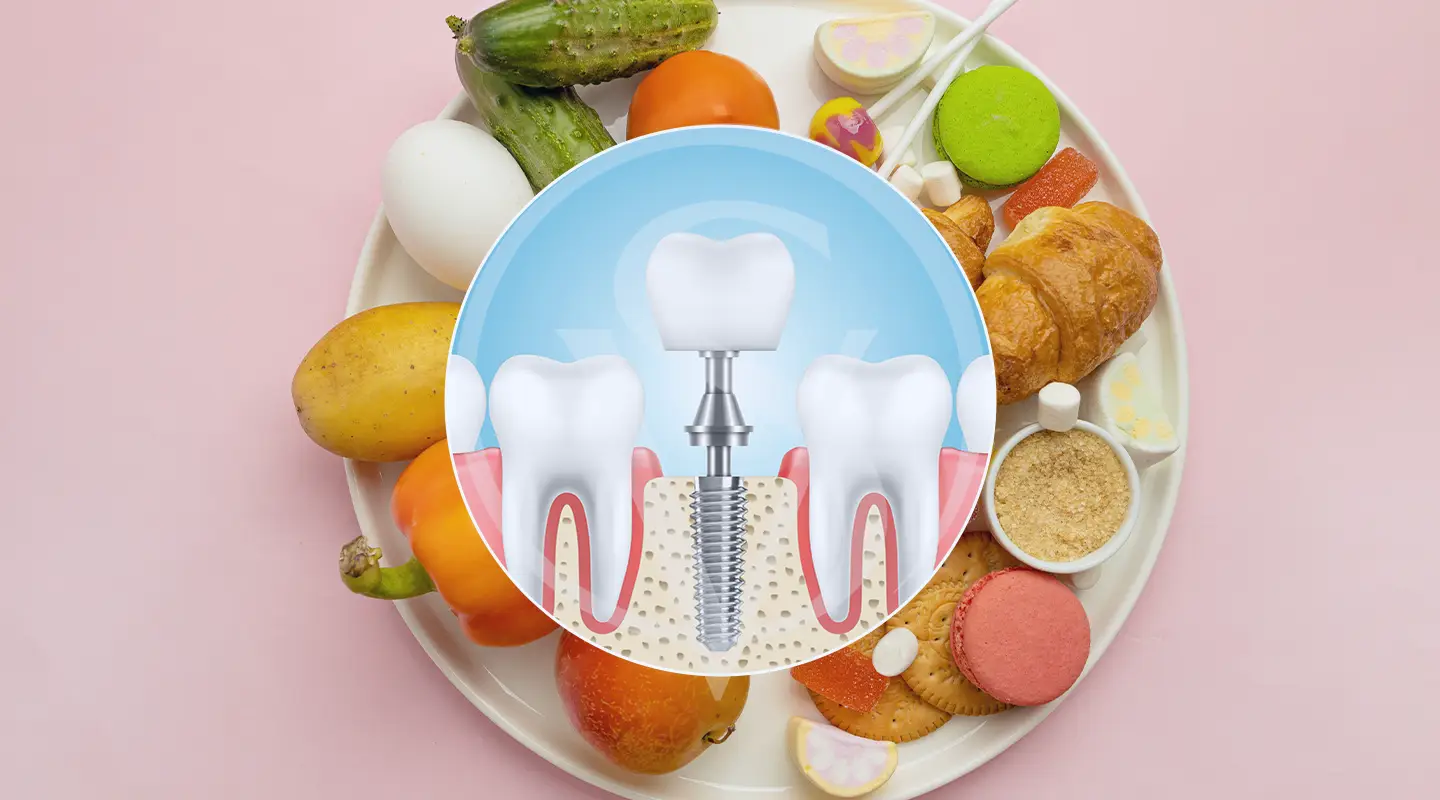Introduction
Have you ever had the experience of attempting to sip from your cup of coffee in the morning only to find that your teeth looked like someone who had just finished their cup of coffee? Well, this is exactly what smoking does to your mouth.
Let’s get into it.
The primary concern most people have about smoking revolves around lung damage; however, few of them inform themselves about the side effects of smoking on their mouth. Smoking ultimately causes an even slower destruction of teeth and gums and alters the appearance of lips. If you smoke on a regular basis, your mouth has been on the frontline of war every day. At Hardik Dental Clinic in Uttam Nagar, Delhi, I’m Dr. Amit Kumar Singh, and with over 15 years of experience, I’ve seen how smoking wreaks havoc on oral health. Let’s explore these shocking effects and why urgent dental check-ups are a must for smokers in 2025.
How Smoking Damages Your Teeth and Gums Over Time

And.....guess what? It's you, losing your mouth. The Shocking Deterioration of Smoking on Oral Health we all know are cigarettes, which are filled with thousands of toxic chemicals, and for each puff taken, your mouth is introduced to these toxic chemicals.
These chemicals do nothing but destroy your gums, stain your teeth, and reduce the saliva production. Forming an easier way for harmful bacteria to find a prolonged home in your mouth.
The Dangers of Smokers Palate, Tooth Discoloration, and More

- Over a period, smokers develop various severe conditions where the roof of the mouth begins to thicken and become yellow or often whitish from years of exposure to heat and toxic chemicals, known as a smokers palate.
- Along with a smokers palate, there’s an another common condition called smokers tooth, which refers to the yellowing or brown discolouration of a smokers once white teeth.
- The regular brushings even fail to get off the stains caused by nicotine and tar, which stand tough to detach from the tooth enamel.
- And hey, if you think that's tough - try gum disease, tooth loss, or oral cancer - all dangers that smokers face daily.
Say you're a “take it or leave it” smoker, but also consider your smile as an important determinant of your beauty- consider it now! Because let's be honest - yellow teeth and bad breath aren't that flattering.
To avoid and be informed, let’s deeply understand the side effects of smoking.
1. Smokers Palate - An Indirect Consequence of Smoking
Have you ever eaten pizza that was so hot that it burned the roof of your mouth? Ouch! Right? Now, can you even imagine having that pain all the time? without eating something hot? That is the feeling of a smokers palate! That's right. It is one of the lesser-known side effects of smoking but something your uvula knows well.
What is a Smokers Palate?
- Smokers palate is when your palate (the roof of your mouth) becomes hard, rough, and discoloured, a result of being consistently exposed to the chemicals and heat of cigarettes.
- Instead of being soft and pink your palate will be white or yellow in colour, even sometimes red with spots.
- The reason your mouth changes is just an outcome of smoking, which decreases the blood flow by damaging the small blood vessels present in the mouth, eventually making it harder for your mouth to remain healthy. Well, it might not be noticeable at the very initial phase, but which time you’ll start noticing that your mouth feels dry, or you will start having some burning sensation in and around the mouth, and when it eventually gets worse, you'll start seeing small bumps on the roof of your mouth.
Early Symptoms of Smoker’s Palate
- Smokers palate is also called "nicotine stomatitis" and is a warning sign that your oral health is in trouble.
- It is not just an insidious side effects of smoking. Also, it comes out to be expensive when it comes to your oral care.
How it Affects your Oral Health
- A smokers palate is not just about a random unpleasant change in your mouth, but an alarming sign that smoking is extremely harmful for your overall oral health.
- It can potentially lead to infections, bad breath, and even a higher risk of oral cancer.
- Also, once your mouth loses its ability to heal quickly, some common problems like smokers tooth (stained and prostrated teeth) become even worse.
How It Affects Oral Health
This condition weakens the body’s ability to fight infections, leading to worse conditions like smoker’s tooth and gum disease. Regular dental check-ups are essential to identify and treat these issues early.
Say you are a smoker, consider the regular dental check-ups as a crucial step to catching these issues early. Otherwise, your mouth might just be sending you the urgent SOS! Want to know more about SOS Click here.
2. Smokers Tooth – The Dark Reality of Stained Teeth
Seen an old mug with brown stains that just doesn’t go away no matter how much time you are wasting to scrub it off? Well, that’s exactly what happens to a smokers tooth! Difference? You can buy a new set of mugs but can’t do the same for teeth!
What Causes a Smoker’s Tooth?
- One of the most destructive side effects of smoking is how it ruins your smile.
- Cigarettes contain a considerable amount of nicotine and tar- nothing but two biggest culprits behind the smokers tooth.
- When you smoke, these chemicals stick to your teeth and get drained into the enamel, turning them yellow at first.
- Over time, the stain it leaves gets deeper, making your teeth look brown and dirty.
Role of Nicotine and Tar in Tooth Discoloration
- Smokers tooth stains are stubborn, unlike the regular food stains that can be brushed away.
- Even the expensive whitening toothpastes fail to help much as the discolouration is deeply embedded.
- And the more you smoke, the worse it gets!
Effects on Enamel and Overall Dental Hygiene
- Enamel—A protective layer of your teeth- gets a serious hit from smoking.
- It ultimately becomes weaker with time, making your teeth easily prone to cavities and decay issues. And, as we all know,
- Smoking reduces your saliva production, leading to your dry mouth concerns. Less saliva means more bacteria, which eventually more plaque and bad breath.
And hey, if that’s not bad enough, smoking damages your gums as well, which increases the risk of infections and smokers palate- a rough, discoloured condition of the roof of the mouth.
3. Increased Risk of Gum Disease and Infection
Trying to bite into an ice-cream cone just to feel a sudden prick in your teeth? Let’s imagine that discomfort all the time, as we know, that’s how smoking affects! - turns your gums into a warfare, making them weak and prone to infections.
side effects of smoking also include the way it damages your gums. Smoking restrains the blood flow, making it tougher for the gums to get the right amount of oxygen and nutrients they require. Guess the outcome? They start to lose ground, exposing the roots of your teeth. This also creates pockets where bacteria thrive, eventually leading to swelling, bleeding, and even infections full of pain. Initially, you might not feel or even notice it, but over time, the gum infection progresses silently, ultimately leading to loosened teeth and, worst of all, tooth loss.
Understanding the worst part- disease doesn’t just affect your mouth- it’s connected to other health issues such as heart disease and diabetes. Sure, you’re bothered by yellow teeth and bad breath; however, it goes much deeper.
4. Delayed Healing After Dental Procedures
Delayed healing following dental procedures is one of the most important consequences of smoking. Smoking slows your body's natural healing abilities after periodontal disease, tooth removal, or a simple filling.
The chemicals in tobacco decrease blood flow and oxygen to the gums, which makes healing after a dental treatment more difficult. This leads to more pain, swelling, and an increased risk for infections. Do you know about dry socket? It may be the single most painful complication after tooth removal. The risk of suffering from dry socket is much higher for smokers than non-smokers.
Normally, a blood clot forms in the space where a tooth has been removed to protect that area of the mouth while it heals. Smoking can interfere with that clot; it can dislodge it or inhibit it from forming at all. This exposes sensitive bone, leading to significant amounts of pain and the need to return to the dentist. If you smoke, even routine dental treatment becomes a much larger problem. The gums take longer to heal, stitches don't hold as well, and implants have an increased risk of failure. Your dentist may ask you to quit smoking prior to surgery, considering your increased surgical risk. What is the best way to improve healing time? Don't smoke, especially after the procedure.
5. Oral Cancer Risk Increases Significantly
Imagine that your mouth is hosting a surprise party, but instead of a cake and balloons in the centre of the party, it is celebrating something much more sinister: oral cancer. And the guest of honour, the VIP invitation to the party, is smoking. Moreover, smoking increases your chances of developing oral cancer.
Cigarettes, cigars, and smokeless tobacco have deadly chemicals that destroy the tissues and cells of your mouth and do so over time. These harmful ingredients do not simply present the cosmetic nuisance of staining your teeth; they cause profound damage to the gums, tongue, cheeks and throat, all magnifying your chance of developing oral cancer. The shocking and sad fact is that oral cancer often starts quietly, with initial signs in the mouth of a small sore, a white or red patch, or mild pain that many patients have ignored until they can no longer look past the symptoms and they seek medical advice.
Unfortunately, by the time they identify there is a real problem from the oral symptoms of difficulty in swallowing, chronic discomfort while eating, noticeable lumps, and lumps in the neck – they may be much further along in the disease process that the reason for these oral cancer symptoms. The truth is that smokers are up to 10 times as likely to develop oral cancer than non-smokers, and smoking is not just limited to a cigarette or cigar. Other products, such as hookah, vapes and chewable tobacco all bring their own risks. The power of constant use of toxic chemicals has weakened the body to return it to optimized condition to flush out the cytotoxic cells, thereby allowing oral cancer processes to occur much more easily.
6. Lips Darkening and Damage
Have you ever noticed an old white T-shirt that has become yellowed over time? Now, think about the same thing happening to your lips, and it’s smoking that has caused it! As you learn in a smoking, smoking does more than damage lungs and stain teeth. Smoking causes the lips to darken, dry out, and chap as nicotine and tar stain the lips.
7. How Smoking Damages Your Oral Health
Smoking is to a healthy mouth like ice cream is to hot soup—they don't belong together! Smoking is bad for your mouth in many ways. It will stain your teeth, weaken your gums, and make your breath smell like an ashtray! Over time, smoking will diminish blood flow to your gums, rendering them prone to infection and tooth loss. It also causes a dry mouth, which leads to the buildup of bacteria (also contributing to that bad breath that a mint won't fix)! Smokers also struggle with dark, chapped lips as their lips are constantly exposed to heat and harmful chemicals. That is why lips care for smokers is important! As a smoking lips remedy for smoking lips, use aloe vera, lemon-honey masks or SPF lip balm to help restore softness to your lips and prevent further discoloration. So, what are the best smoking lips remedy? Cut back on smoking, or quit! Your mouth, teeth, and lips will appreciate it—and you won't have to worry about the people you scare away with your breath!
Best Lips Care Routine for Smokers

Let's discover some smoking lips remedy for your smoking lips! If quitting smoking is not an option immediately, here are some simple ways to take care lips for smokers your lips while they regain their natural health.
Stay Hydrated – Dry lips are more susceptible to discoloration. Drink enough water to soften your lips and prevent from drying out.
Exfoliate – Use a gentle mixture of honey and sugar to buff and remove dry, dead skin from the lips.
Hydrate: Try lip balm with sunscreen to preclude additional trauma.
Lemon & Honey Mask: Lemon has a natural bleaching agent, and honey prevents dryness.
Aloe Vera Gel: This is helpful in soothing and healing damaged lips. The best treatment? Reducing or quitting smoking altogether! That’s the only way to eliminate damage completely! Because let’s be real—your lips deserve to be smooth, hydrated, and kissable—not stained like an old coffee cup!
How Regular Dental Checkups Help Smokers
.webp)
Not going to the dentist as a smoker is like never taking your car in for an oil change—eventually, you will have issues, but it will be too late! Smoking raises the risk of gum disease, decay, bad breath and even oral cancers. Regular dental check-ups can help you identify these problem areas early on before serious health issues begin to occur (including pain!). Dentists will remove stubborn tobacco stains, check for signs of infection, and provide preventative treatment methods to keep gums and teeth healthy.
Smokers also have a higher possibility of plaque build-up, which leads to cavities and gum recession. A check-up every couple of month will prevent damages from accumulating over a longer period. Further, if your lips have been darkened from tobacco use, your dentist will be able to offer treatments to restore their natural colour.
Most importantly, a regular check-up will help you maintain your smile so it’s a little bit fresher when you don’t want to or choose to give up smoking. No one wants a smile that says, “I smoke too much!”
Conclusion: Protect Your Smile in 2025
The best way to avoid all of this? Quit smoking and maintain good oral hygiene. Regular brushing, flossing, and dental check-ups can help, but nothing works as well as removing the root cause—smoking itself. Your gums are the foundation of your smile, and if you don’t take care of them, your teeth won’t stick around for long!
A bright smile can boost your confidence, but smoking slowly takes that away. The good news? Regular dental visits and quitting smoking can help you regain a healthier smile. Because let’s be real—yellow teeth and bad breath aren’t the best first impression!
Smokers should always be attentive about getting regular visits to a dental care. Dentists who identify the symptoms of damage early may eradicate the stubborn stains and assist the patients in preventing any further serious issues from progressing. Just like a car needs routine maintenance so it doesn't break down? Your teeth need to be looked at to remain healthy. At Hardik Dental Clinic, we’re here to help—call us at +91 9810118391 or book online today!
“Your smile deserves better—quit smoking and let us help you shine.”
Frequently Asked Questions
Smoking increases risks like smokers palate, tooth discoloration, gum disease, delayed healing, oral cancer, and lip damage.
Smokers palate occurs when the roof of your mouth hardens and discolors due to constant exposure to cigarette heat and chemicals.
Yes, regular check-ups can remove stubborn stains and monitor enamel damage caused by nicotine and tar.
Smokers face higher risks of gum disease, oral cancer, and healing issues, making early detection through check-ups critical.
Use hydration, exfoliation, SPF lip balm, and remedies like lemon-honey masks or aloe vera—quitting smoking is the best solution.




